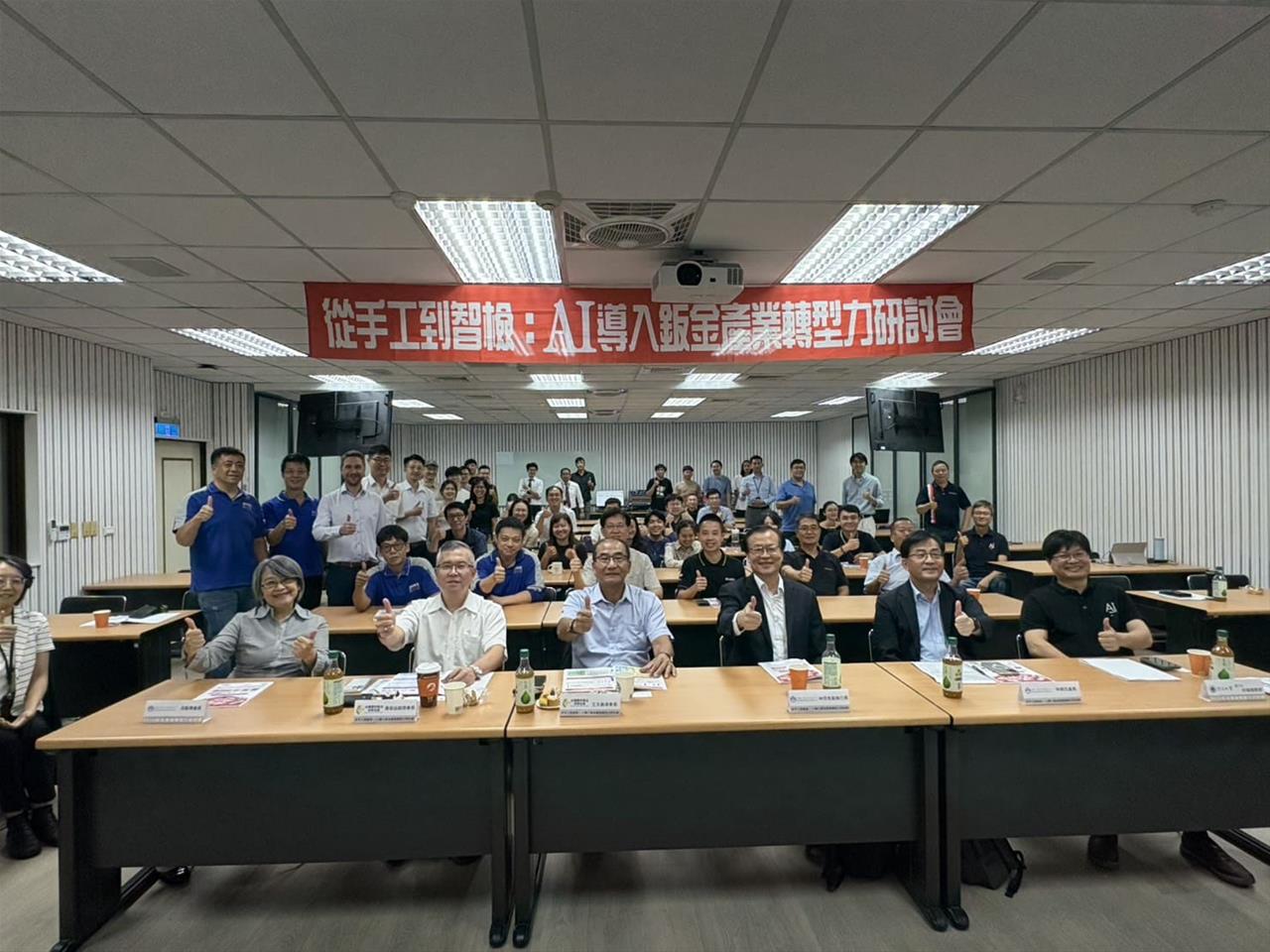
The “From Manual to Smart Inspection – Seminar on AI-Enabled Transition in the Sheet Metal Industry,” which is part of the seminar series “New Definition of Manufacturing | Local Industries × AI-Enabled Transition,” was successfully concluded at Tunghai University on October 21, attracting experts from industry, government, and academia and companies to gather and engage in exchanges. Chia-Ju Liu, Chairman of MIRDC, pointed out that the MIRDC has combined policy implementation with technology R&D in a critical moment of the industry’s transition, and focused on the application of AI and automated optical inspection (AOI) in sheet metal processing under the “Local Industry-Academia-Research Innovation Value-Added Integration Project,” assisting the industry in digital upgrading, and generating momentum for the traditional sheet metal industry to pave the way toward smart manufacturing through AI.
Lei-Chuan Lin, Vice President of MIRDC, stressed that the MIRDC took this opportunity to specially invite representatives from two major sheet metal associations in Taiwan and related companies to the morning discussion session, during which they recommended strategies for the future development of the sheet metal industry and shared their experience. The MIRDC also utilizes the Technology Development Program of the Department of Industrial Technology, Ministry of Economic Affairs to assist the industry with applying AI and AOI technologies, and combines them with digital twin applications to further add value to products and upgrade to smart manufacturing. He also thanked Director Chorng-Tyan Lin of the Micro/Meso Mechanical Manufacturing (M4) R&D Department and Director Cheng-Chang Chiu of the Energy and Agile System Department for leading the team of Engineer Chien-Ming Tseng and other teams in developing technologies for the sheet metal industry over the years, which have contributed to the industry’s upgrade. Wen-Yi Wang, Chairman of Taiwan Laser Application Development Association, said that the industry landscape is rapidly restructuring due to the challenges of international tariffs and market competition, and that deeply integrating AI into processes is the only way to transform it into real competitiveness. Ming-Chieh Liu, Chairman of Taiwan Sheet Metal Management Association, pointed out that the sheet metal industry has long relied on the experience of skilled workers and manual inspection. The introduction of AI is an opportunity for transition that will allow the industry to find a new balance between quality, efficiency, and talent gaps.
First, Pei-Chang Wen, Deputy Director of the Chung-Hua Institution for Economic Research, shared current development trends of the sheet metal industry and that restructuring of the supply chain is accelerating due to the impact of tariffs and geopolitics. Taiwan has an edge in precision manufacturing and flexible customization, which will allow it to enter high-end application markets, such as edge computing equipment, robots, medical devices, green energy equipment, and food processing, and develop high-end customized and new product applications. After Konzern Laser adopted the metal part defect detection technology developed by the MIRDC, its inspection yield rate increased to 95%, effectively shortening delivery time, assisting the company's digital transformation, and building customer trust. TRUMPF Taiwan shared the latest AI technologies in the European sheet metal industry. Keyence Corporation proposed precision measurement solutions for large sheet metal parts.
Director Chen-Chang Chiu of the Energy and Agile System Department presented several AI solutions, including the independently developed AISL AI development tool, which integrates AI and AOI technology for applications in core sand recognition and weld bead and sheet metal defect detection. The solutions are already being used in production lines of Shin Nan Casting Factory and shipyards. The system can automatically track process anomalies and determine the source of problems through digital modeling and machine learning, effectively improving manufacturing efficiency and quality, and showing the real benefits of adopting AI in production lines. Finally, Lun-Chi Chen, Associate Professor at the AI Center of Tunghai University, explained how to use the digital lean strategy as the focus for future upgrades of the manufacturing industry during his speech on “The Resilience of the Manufacturing Industry Against the Impact of Tariffs.”
With the advent of the AI era, the adoption of AI and AOI technologies is gradually improving the quality, manpower, and efficiency of manufacturing processes. AI is able to provide the tools needed, but the only way for companies to build real competitive advantages is by fully utilizing data and seizing opportunities for transition, so that they can build momentum amid changes.